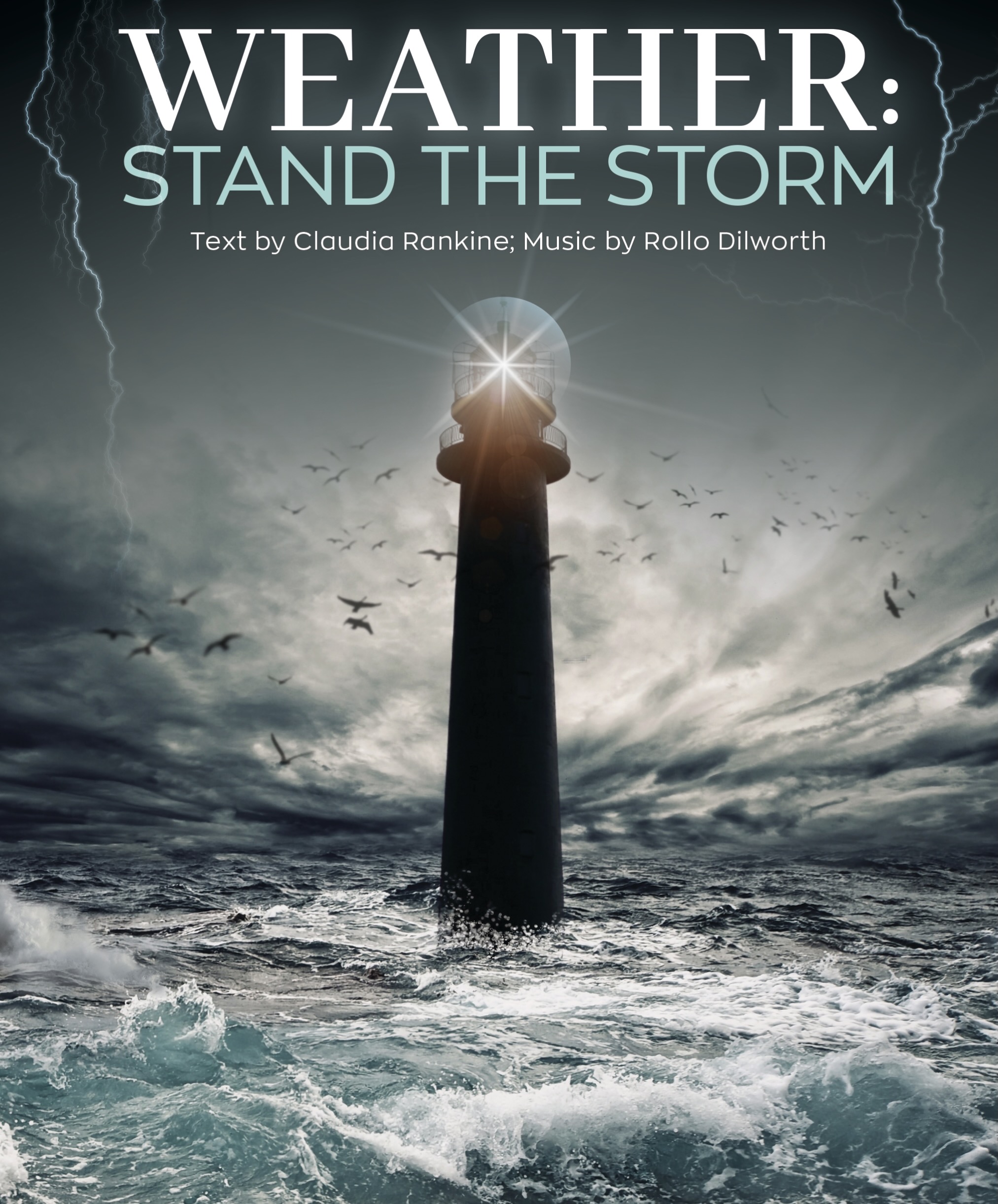
- This event has passed.
World House Choir – “Weather: Stand the Storm” at the Foundry Theater
April 25, 2024 @ 7:00 pm - April 27, 2024 @ 9:00 pm EDT

music by Rollo Dilworth
poetry by Claudia Rankine
From the Composer:
May 25th of 2020 was a Memorial Day that took on new meaning for not just for those who were citizens of the United States of America, but also for citizens around the world who witnessed the murder of George Floyd by a Minneapolis police officer. The institutional marginalization of Black people in the US has been a part of the nation’s history since the first enslaved Africans arrived on its shores in 1619. While Black, Brown, Indigenous, and People of Color (BIPOC) have experienced some levels of educational, economic, and social advancement in this country, George Floyd’s murder was “wake up” call to many—confirming that much work still needs to be done if America is to live up to its creed that proclaims, “all are created equal,” and its promise of “liberty and justice for all.”
The death of George Floyd soon became a defining moment in the discourse on systemic racism and social injustice. Even in the midst of a global pandemic, people from all walks of life have sought both personal and public ways to respond to this traumatic and tragic event. Individuals and institutions around the world have been inspired to take a closer look at themselves, to seek a deeper understanding of the dynamics of racism and bias and their effect on the present, and to take purposeful actions that promote a more just society.
Historically, the arts have always fulfilled the dual roles of responding to change while at the same time creating change. Weather is a poem that gives voice to the voiceless, especially those who have been and continue to be marginalized because of difference. It responds to and reflects realities that are both culturally specific and humanly universal. Professor Claudia Rankine challenges all of us (no matter your background or lived experience) to know better, to do better, to take action, and to become agents of social justice and social change.
Everyone has a role to play in building and sustaining communities that are fair and just for all. Therefore, Weather is a learning opportunity for all of us. All persons are invited to tell this story and learn from it. However, the words and music are not to be taken lightly. Before and during the musical preparation process, it is important that the singers, instrumentalists, and the conductor-teachers immerse themselves in learning experiences (readings, videos, projects, conversations, etc.) that deepen their understanding about bias, racism, classism, sexism, and other forms of marginalization. Just as an actor “does their homework” to gain greater understanding of the role before them, so too must be the case for those performing Weather. As artists, we must commit ourselves to doing this work. Otherwise, the resulting performance will lack credibility and artistic integrity. All tempo and expression markings should be closely followed, and the text must be articulated with the utmost clarity and respect.
When I was presented the opportunity to set Professor Claudia Rankine’s poem Weather to music, I immediately found resonance with the words. “Weather” is a contranym (a word with contradictory meanings). It could mean “to withstand,” and it can also mean “to wear away.” After spending many hours studying the poem, I had to think very carefully about how I could employ tonal, rhythmic, stylistic, and expressive elements that would amplify (and not detract from) such a powerful and multi-dimensional sequencing of words. I sincerely hope the resulting composition, bearing same title as the poem, will serve as a meaningful, musical manifestation of Rankine’s important and timely message to the world.
–Rollo Dilworth
